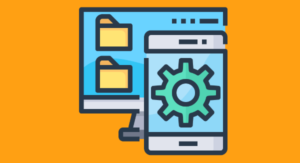There are plenty of jobs available in the web development field, and the number seems to be growing every day. At the same time, however, getting one of those jobs for yourself may not always be a simple task.
In this article, we’ll look at a few things you can do to make your search a little bit easier, while improving your chances at being the perfect hireable candidate.
Step 1: Preparing Your Resume
As a rule, it’s a good idea to keep an up-to-date resume at all times. This way, it’s much easier to keep track of where you’ve been and what you’ve been up to. Additionally, your resume should only contain information that is relevant to the job you’re seeking.
If you’re a new developer and don’t have any relevant experience, I’d recommend spending some time doing freelance and side project work. That way, you’ll have content to put in your resume and your portfolio.
In the US, there’s an unwritten rule that your resume should be no longer than one page. I tend to disagree with this. Your resume can be as long as you’d like (within reason). Just make sure the information provided is relevant, engaging, and well designed.
Step 2: Finding an Opening
While everyone seems to be looking for a web developer to hire, there are a few places in particular that I like to look for job offers.
Hired.com
Hired works in a way that’s very different from the standard recruiting agency. When you sign up for Hired, you’ll be prompted to create a profile. A talent agent will connect with you to help ensure your profile is appealing to the companies who’ll view it.
Once your profile is ready, you’ll get a chance to enter into your first auction. An auction is where employers view your profile and get a chance to send you an offer, complete with salary and equity information up front. You can then view a dashboard of your offers, where you have the option to reject, accept, or re-negotiate. If you accept an offer, and it leads to you getting hired, Hired will send you a $2,000 check as a signing bonus. The best part: it’s all completely free!
CodePen Jobs
Chris Coyier works on CodePen, ShopTalk Show and CSS-Tricks. All three of those sites share the same job board. This creates a huge incentive for companies to post jobs there, in hopes they can attract the best and brightest talent. This is great news for the job seeker. Lots of great companies have been posting here lately, and lots of great candidates have been hired as a result!
Smashing Jobs
Who can forget Smashing Magazine? With such a notable and respected brand, many companies go straight to Smashing’s job board when they need to find talented developers and engineers. If you’re looking for remote work or overseas options, this one is especially good.
Step 3: The Online Portfolio
Your portfolio can be the difference between getting an interview and never hearing back from a company after submitting your resume. This is especially true if you’re seeking a front-end role.
Your portfolio should include:
- a brief description of yourself
- relevant projects you’ve worked on
- links to places where your code can be found
- your resume
- an email address where you can be contacted.
For my own portfolio, I also link to my Twitter, CodePen, and GitHub accounts. GitHub and CodePen are very important, because they show actual code that I’ve written, while also showing that I’m interested in open-source and community collaboration.
I can’t stress this enough: if you’re going to apply for a job as a web developer, make sure it’s easy to find code you’ve written!
It’s also important to make sure your portfolio is easy to read, with a well structured hierarchy of information. It should be just enough information to show you’re a competant developer that any potential employer would be enterested in interviewing.
Lastly, if you’re applying for a web developer role, it’s good practice to make sure your portfolio is completely hand coded and using the best industry practices.
Bonus Points: have a blog on your portfolio that you keep up to date. Write about side projects, challenges you’ve overcome, or anything else relevant to the industry!
Step 4: Preparing for the Interview
So, you found a job offer that you’re interested in and your resume and portfolio attracted the potential employer’s interest. Congratulations! But we still have some work to do!
Web development interviews can be notoriously difficult—so much so that there are entire websites dedicated to helping candidates pass them. I’ve used two of these, Front-end-Developer-Interview-Questions and Interview Cake. In preparation for a web development interview, spend as much time as you can looking over these types of questions and brushing up on the fundamentals. Be sure to read through the job description and requirements carefully, as they often hint at the type of questions you’ll be asked during the interview.
Personally, when I interview potential candidates for front-end roles, I never ask them to write code for me on a whiteboard. I don’t think it’s a fair challenge, as even I probably spend too much time using Google and Stack Overflow as tools to help me solve coding challenges.
Instead, I like to ask the candidate questions about various aspects of a typical front-end role. This means questions about Gzip compression, responsive images, writing JavaScript without the use of jQuery, and, of course, the candidate’s favorite HTML5 tag. If you’re ever asked a question you don’t know the answer to, it’s okay to admit that you don’t have the answer. Interviewers don’t expect you to know everything, and they’ll appreciate your honesty.
When you’re asked a question you don’t have the answer to, ask for the answer and write it down. This will show the interviewer that you’re engaged and always ready to learn.
Finally, a few days before your interview, spend as much time as you can learning about the company.
Bonus Points: bring a pen, paper, and your resume to the interview. Write your own follow-up questions before you go in. The stress of the interview process will usually lead to forgetting the questions you planned to ask about the company.
Conclusion
A lot goes into getting a great job as a web developer, and we’ve just barely scratched the surface in this article. Do you have any questions about the hiring process? Feel free to ask away in the comments!
If you have a resume that you’d like to have reviewed, feel free to reach out in the comments and I’d be more than happy to take a look for you.
Resources
Finally, here are some other great resources for helping you get a job:
- Viewsources Podcast on Hiring
- Zoe Rooney on the things you really need to become a front-end developer
- Andrew Chalkley on How to Land your First Development Job.
Tim Evko is a front end web developer from New York, with a passion for responsive web development, Sass, and JavaScript. He lives on coffee, CodePen demos and flannel shirts.






